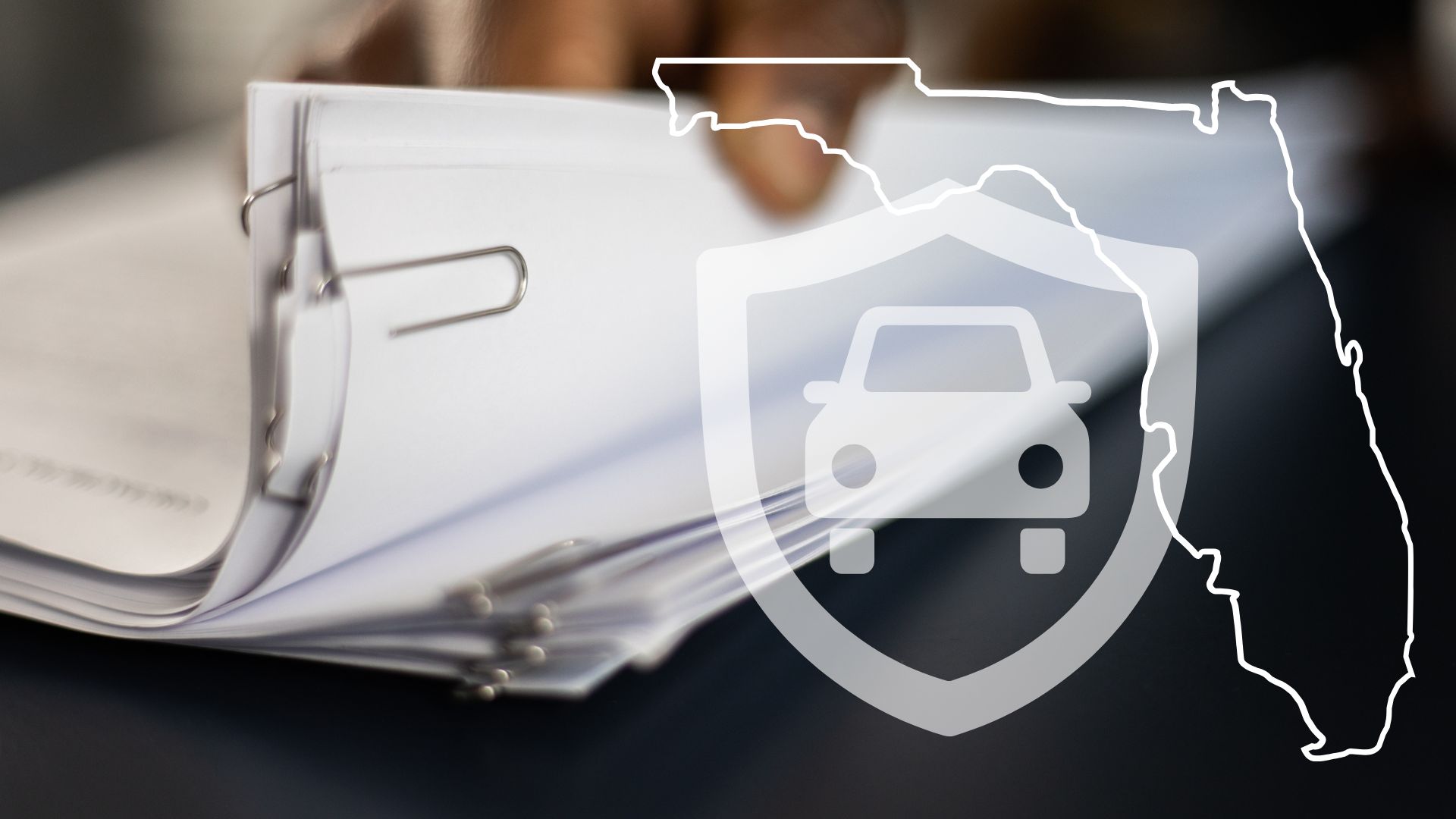Efforts to reshape Florida’s auto insurance laws are in full swing, with the Senate Banking and Insurance Committee preparing to review the latest proposal, SB 54. This ongoing debate could significantly impact drivers across the Sunshine State. Here’s what you need to know about Florida’s no-fault system, the proposed changes, and what they mean for you.
Understanding Florida’s No-Fault Auto System
Florida is one of only two states that mandates a no-fault auto insurance framework. Under this system, drivers are required to carry personal injury protection (PIP) coverage, a policy that covers up to $10,000 in medical expenses regardless of fault in an accident.
While PIP coverage is designed to simplify claims and expedite medical bill payments, critics argue that the system is outdated. The $10,000 limit hasn’t changed since its inception in 1979, leaving many drivers without adequate coverage for today’s medical costs. Additionally, some argue that the no-fault system incentivizes fraud and does little to protect victims in serious accidents.
Proponents of changing the rules believe it’s time to modernize and require drivers to meet higher liability standards to ensure they’re adequately protected.
Timeline of Florida’s Efforts to Reform No-Fault Auto Insurance
1979
- Florida enacts the no-fault auto insurance system, requiring Personal Injury Protection (PIP) with a minimum of $10,000 coverage. This framework was designed to speed up medical payments without determining fault.
2012
- Lawmakers propose significant reforms to the no-fault system to target fraud and inefficiencies. The effort stalls due to lack of consensus in the legislature.
2016
- Florida’s Office of Insurance Regulation releases a report suggesting a move to mandatory bodily injury liability coverage could lead to a 5.6% reduction in premiums for some drivers.
2018
- A study by Milliman, an actuarial consulting firm, predicts that ending the no-fault system could result in an average premium increase of $67 per year, raising concerns about affordability.
2021
- January 26: Senator Danny Burgess introduces SB 54, aiming to repeal the no-fault system and replace PIP with mandatory bodily injury liability (BIL) coverage.
- April 30: The Florida legislature passes SB 54 after months of debate.
- June 30: Governor Ron DeSantis vetoes SB 54, citing concerns over potential premium increases and the risk of more uninsured drivers.
2022
- Lawmakers reintroduce similar repeal bills in both the House and Senate. These efforts fail to gain traction and do not advance through legislative committees.
March 2023
- A new proposal, SB 586, is introduced in the Florida Senate. This proposal builds on the framework of SB 54, again targeting the repeal of the no-fault system and calling for mandatory bodily injury liability coverage.
January 2024
- The Senate Banking and Insurance Committee is set to review another version of SB 54 or similar proposals, reflecting lawmakers’ ongoing commitment to reform.
Future (TBD)
- The latest action for SB 54 occurred on March 4, 2025, when it was introduced in the Senate. It is currently under review by the Senate Banking and Insurance Committee. The next steps will depend on the committee’s schedule and decisions, but no specific future hearing date has been announced yet.
This timeline captures the persistent legislative efforts and key milestones surrounding Florida’s contentious no-fault reform debate. The process reflects how complex and impactful such changes could be for drivers and stakeholders alike.
What SB 54 Proposes
SB 54, led by Senator Danny Burgess, aims to repeal the no-fault system entirely. Instead of PIP coverage, Floridians would be required to carry bodily injury liability (BIL) coverage. Drivers would need a minimum of $25,000 in coverage for injuries to one person and $50,000 for injuries to two or more people. The existing $10,000 property damage coverage requirement would remain.
The bill also proposes insurers offer optional “medical payments coverage” (MedPay) starting at $5,000 to act as a safeguard for policyholders, covering immediate healthcare expenses after accidents. Another critical feature of the proposal is setting up a framework for addressing disputes between insurers and policyholders through “bad faith” lawsuits.
SB 54 has prompted intense debate. Proponents argue the higher coverage levels could protect drivers better while enhancing accountability since motorists at fault would bear the financial burden of damages. On the other hand, opponents worry about rising premiums and a potential spike in uninsured drivers as a result of increased costs.
The Path Toward Reform
Florida’s lawmakers have been working on auto insurance reform for years, revisiting the no-fault debate time and again. Back in 2012, there were failed attempts to reform PIP itself, and SB 54’s predecessor, introduced in 2021, was vetoed by Governor Ron DeSantis. At the time, DeSantis expressed concerns that the changes might increase insurance costs rather than reduce them.
Fast forward to 2023, and the continued push for reform shows that legislators are determined to reframe Florida’s auto insurance framework. This time, SB 54 is just one of several proposals aimed at addressing the gaps in the no-fault system. While it’s uncertain whether the bill will pass, the urgency to create a safer and more equitable system remains high on the legislative agenda.
What Experts Say About SB 54
Insurance experts are divided on whether this change could truly benefit Floridians. Advocates for SB 54 believe the current structure of PIP is insufficient for modern medical expenses, which can easily exceed the $10,000 limit, leaving drivers to foot the remaining bills. Shifting to a liability-based system would hold at-fault drivers accountable and align Florida with most other states.
However, there are studies showing mixed financial impacts. A 2016 report predicted drivers could save up to 5.6% under the proposed system. Yet, a separate study estimated premiums might increase by an average of $67 annually, reflecting the potential costs of higher required coverage. The true financial impact likely depends on various factors, such as market conditions and how insurers implement the changes.
How These Changes Could Shape Florida’s Insurance Landscape
If SB 54 is signed into law, it would bring Florida closer to a fault-based insurance model, where the at-fault driver’s insurance pays for the victim’s medical and repair expenses. For drivers, this could mean taking a closer look at their current coverage to ensure they meet the proposed liability requirements.
Additionally, offering MedPay as an add-on presents an opportunity for drivers to safeguard against costly medical bills. While voluntary, this coverage could help avoid out-of-pocket expenses for immediate treatment, making it a practical consideration.
For uninsured or underinsured motorists, the changes could also emphasize the need for purchasing additional coverage to protect themselves in case of accidents involving drivers who don’t meet the law’s requirements.
What’s Next?
The debate surrounding Florida’s no-fault system is far from over. Lawmakers will need to weigh the benefits of increased accountability and protection against the risk of higher premiums and potential barriers to insurance affordability.
For now, Floridians should stay informed and prepared. If you’re a driver in Florida, consider contacting your insurance provider to review your coverage and understand how these reforms, if enacted, might affect you. While no system is perfect, SB 54 signals a pivotal moment to rethink how the state safeguards its drivers and the way accidents are managed financially.
This legislative effort reminds us that auto insurance isn’t just another bill to pay. It’s a tool for protecting lives, livelihoods, and peace of mind on the road, and changes to its structure should prioritize these principles above all else.


